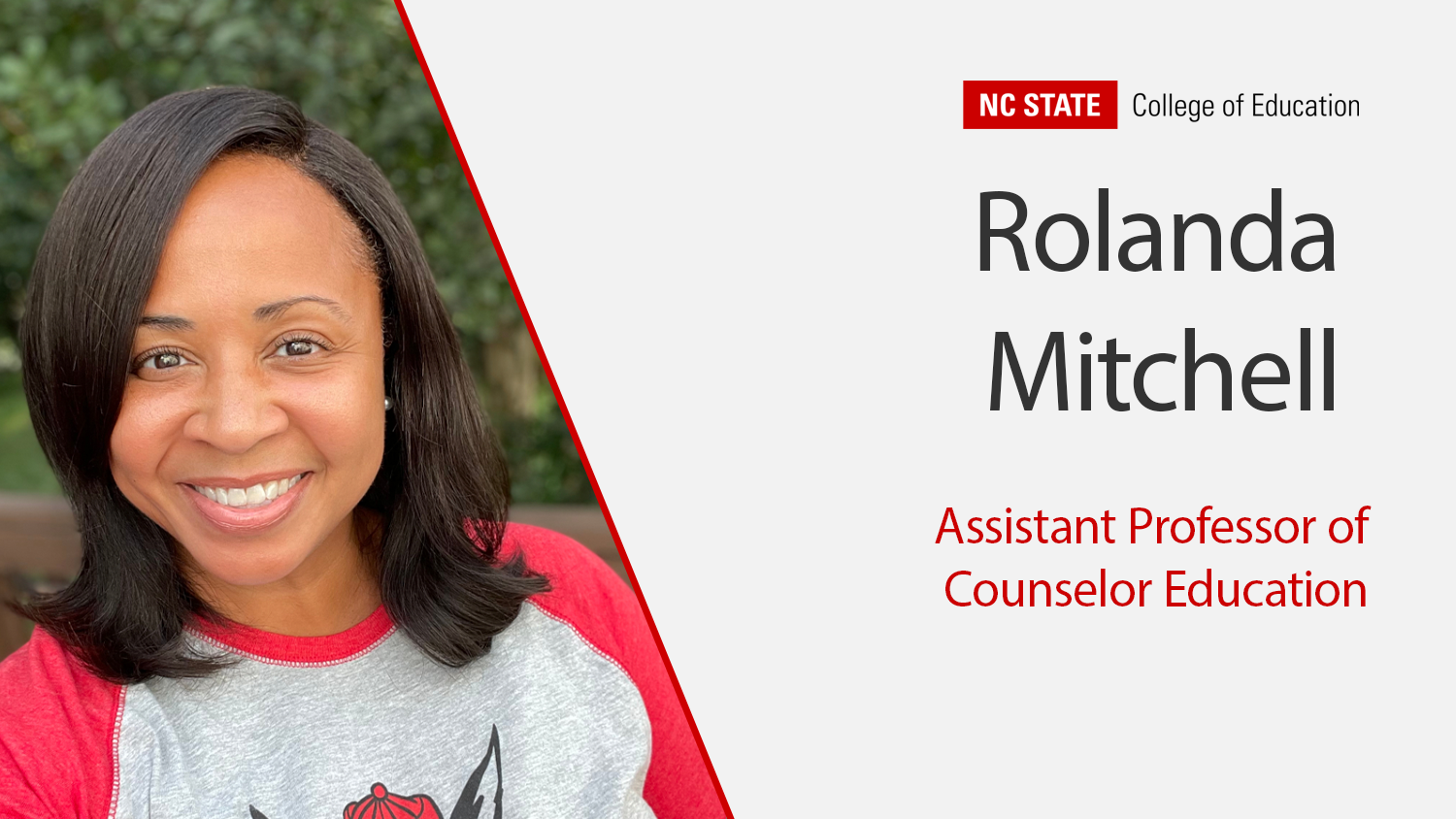Rolanda Mitchell: ‘I Believe an Extraordinary Educator is One Who Fosters as Much Personal Growth as Academic Growth Within Their Students’

Rolanda Mitchell will take on a new role in the NC State College of Education during the 2023-24 academic year as an assistant professor of counselor education.
Mitchell first joined the College of Education in 2018 and previously served as an assistant teaching professor of counselor education.
Learn more about Mitchell below:
Why did you choose a career in counseling?
As an undergraduate student, I knew I wanted to work in public schools but wasn’t sure which specific role was the best fit. I had the opportunity to shadow several K-12 educators and meet with faculty in various majors, and ultimately realized that school counseling was the best way to use my strengths to support K-12 students. The role allowed me to guide students through their emotional, social and academic hurdle,s and I found it to be incredibly rewarding.
What are your research interests?
The two primary areas of focus for my research are efficacy and supervision in school counseling and equity in and access to mental health services in Black communities.
What sparked your interest in those topics?
My lived experiences as a Black woman, counselor and educator spark my interest in those areas. While I have served in various counseling roles, school counseling remains a big part of my professional identity. I am passionate about preparing effective counselors for the school setting, and I believe research around counseling self-efficacy and supervision practices can inform the work we do in a positive manner. I am also incredibly passionate about ensuring Black people have the resources they need to be successful; one important resource is access to effective mental health services. I have seen how stigma around mental health and a general distrust of health professionals can impact our community, and I want to use my position to chip away at those barriers.
What is one moment or project in your academic career that you are particularly proud of?
Last year, I was nominated for an outstanding teaching award, which was wonderful in and of itself. But, what stood out the most was the response I received from the students whom I asked to write a letter of support. Seeing my role as an instructor through their eyes made me very proud of the work I do in the classroom and the impact I am making on our students.
What is your teaching philosophy?
My teaching philosophy comes from a developmental perspective. Counseling does not have nearly enough clear-cut, right and wrong answers for students; they often struggle with the ambiguity of counseling approaches. For example, three students can conduct a counseling session in three very different ways and be equally effective. We are fortunate to have very high-achieving students in our program, but that often means they have a desire to get everything exactly right the first time; hearing that “there isn’t one right answer” can be tough! A developmental approach, centering growth more heavily than initial mastery, can help to mitigate this angst. I encourage students to recognize that stumbling and feeling uncertain is a part of the process and is not indicative of their ability to be a strong student or a competent counselor. Instead, it is through the stumbles and discomfort that professional and personal growth occurs.
What do you hope your students have been and will continue to learn from you?
I hope that my students learn that in order to be an effective counselor, they must lead with empathy, cultural consciousness and an ongoing desire to learn and grow professionally.
What do you believe makes someone an extraordinary educator?
I believe an extraordinary educator is one who fosters as much personal growth as academic growth within their students.
- Categories:


